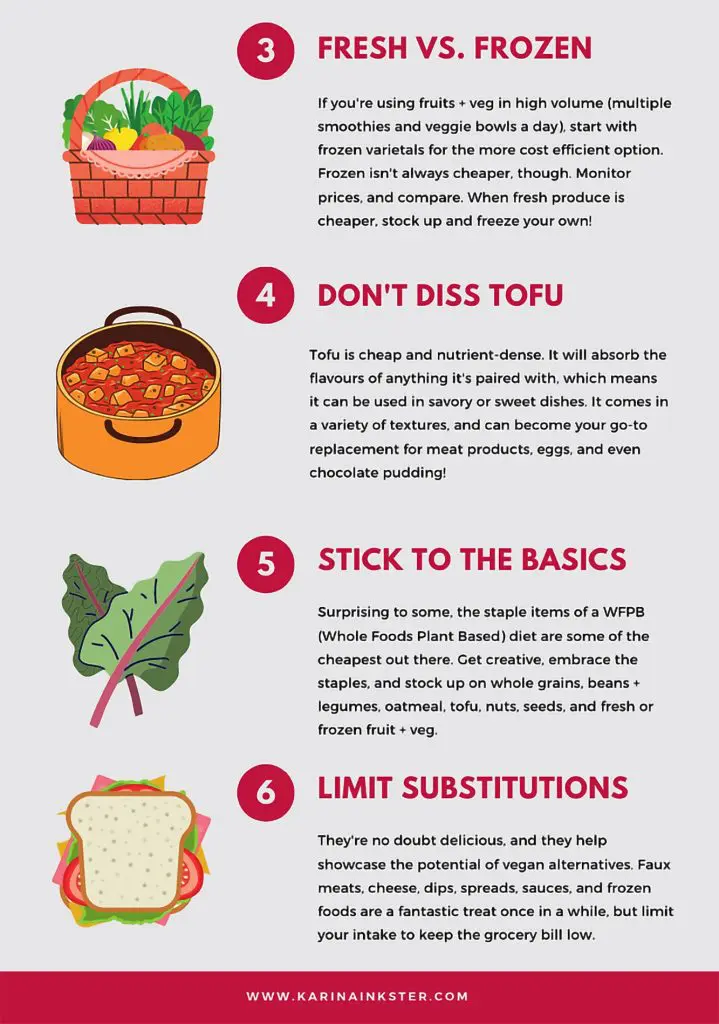Access to healthy, affordable food remains a significant challenge for many living in underserved communities, where food deserts—areas with limited availability of fresh, nutritious options—are prevalent. For those pursuing plant-based diets, the issue is even more pronounced due to the scarcity of vegan-friendly choices in these regions. This disparity highlights a critical intersection between socio-economic inequality and access to sustainable eating options. By addressing barriers such as income constraints, transportation challenges, and the high cost of plant-based foods, we can begin building a more equitable food system. From community gardens and farmers’ markets to education initiatives that empower individuals with knowledge about plant-based nutrition, this article explores actionable solutions aimed at bridging the gap in healthy eating accessibility for all
In recent years, there has been a growing awareness of the importance of healthy eating and the impact it has on overall well-being. However, for many individuals living in low-income communities, access to fresh and nutritious food is often limited. These areas, known as “food deserts,” are typically characterized by a lack of grocery stores and an abundance of fast food restaurants. Compounding this issue is the limited availability of vegan options, making it even more challenging for those who follow a plant-based diet to access healthy food choices. This lack of accessibility not only perpetuates inequality in terms of healthy eating options, but it also has significant implications for public health. In this article, we will explore the concept of food deserts and vegan accessibility, and the ways in which these factors contribute to inequality in healthy eating options. We will also discuss potential solutions and initiatives that aim to address this issue and promote accessibility to nutritious and plant-based foods for all individuals, regardless of their socio-economic status.

Examining socio-economic impact on vegan accessibility
Access to healthy and affordable food options is a critical issue in addressing inequality in underserved communities. Investigating how socio-economic factors influence access to vegan foods in these areas is essential to understanding the barriers faced by individuals who may want to adopt a vegan lifestyle. Socio-economic factors such as income levels, education, and proximity to grocery stores heavily impact the availability and affordability of vegan options in these communities. Limited financial resources and a lack of transportation can make it difficult for residents to access fresh fruits, vegetables, and plant-based protein sources. Recognizing the importance of bridging this gap, several initiatives have emerged to improve vegan accessibility in underserved areas. These initiatives focus on increasing the presence of affordable vegan food options in local stores, promoting community gardening programs, and providing education and resources on plant-based nutrition. By addressing the socio-economic factors that impact vegan accessibility, we can work towards creating a more inclusive and equitable food system that offers healthy eating options for all individuals, regardless of their socio-economic background.
Uncovering food deserts in underserved areas
Food deserts can be particularly prevalent in underserved areas, where residents may face significant challenges in accessing nutritious and affordable food. Investigating how socio-economic factors influence access to vegan foods in these communities is crucial in understanding the depth of the issue and developing effective solutions. By analyzing income levels, education, and proximity to grocery stores, we can gain insights into the specific barriers that hinder the availability and affordability of vegan options for residents. This research can inform targeted initiatives that aim to improve healthy eating options through measures such as establishing community gardens, supporting local farmers’ markets, and partnering with local businesses to increase the accessibility of fresh and affordable vegan food. By addressing the root causes of food deserts and implementing sustainable solutions, we can work towards a future where all individuals have equal access to healthy and nutritious food choices, regardless of their socio-economic background.

Addressing inequalities in healthy eating
Undoubtedly, addressing inequalities in healthy eating is a multifaceted challenge that requires a comprehensive approach. Socio-economic factors play a significant role in shaping access to nutritious food options, including vegan foods, in underserved communities. Understanding the influence of these factors is essential in designing effective strategies to improve availability and affordability. Initiatives should focus on engaging with community members and stakeholders to identify specific barriers and develop tailored interventions. This could involve collaborating with local businesses and organizations to establish food cooperatives, community kitchens, or mobile markets that bring fresh and affordable vegan options to areas lacking access. Additionally, educational programs can be implemented to promote nutrition literacy and empower individuals to make healthier choices, regardless of their socio-economic background. By investing in these initiatives, we can strive towards a more equitable food system where everyone has the opportunity to embrace a healthy and sustainable lifestyle.
Exploring affordability and availability issues
Exploring affordability and availability issues is crucial in addressing inequality in healthy eating options, particularly in underserved communities. Limited financial resources can significantly impact an individual’s ability to access and afford nutritious vegan foods. High prices of plant-based products and the absence of affordable options contribute to the existing food disparities. To mitigate these challenges, it is essential to examine pricing structures and explore opportunities for subsidies or discounts on vegan products in low-income areas. Additionally, establishing partnerships with local farmers and suppliers can help ensure a steady and affordable supply of fresh produce. Moreover, implementing food assistance programs, such as vouchers or community gardens, can provide individuals with the means to grow their own vegan-friendly foods, promoting self-sufficiency and overcoming accessibility barriers. By actively investigating how socio-economic factors influence access to vegan foods and discussing initiatives to improve availability and affordability, we can take significant strides towards creating a more equitable and inclusive food system.
Socio-economic factors and vegan options
In investigating how socio-economic factors influence access to vegan foods in underserved communities, it is evident that financial constraints play a significant role in determining food choices. Limited resources can restrict individuals from having access to a variety of vegan options, as these products may be perceived as more expensive compared to non-vegan alternatives. The high price point of plant-based foods, coupled with the lack of affordable options in disadvantaged areas, exacerbates the inequality in healthy eating options. To address this issue, initiatives should focus on promoting affordability by collaborating with manufacturers and retailers to reduce the cost of vegan products. Additionally, educational programs can be implemented to raise awareness about budget-friendly vegan alternatives and cooking methods, empowering individuals to make healthier choices within their means. By addressing the socio-economic barriers, we can foster a more inclusive and accessible environment for vegan options in underserved communities, promoting equality in healthy eating.
Bridging the gap for healthy eating
To bridge the gap for healthy eating and address the inequality in healthy eating options, it is crucial to implement comprehensive strategies that go beyond simply increasing access to vegan foods in underserved communities. Encouraging local farmers’ markets and community gardens can provide fresh and affordable produce options to residents. Collaborations with local businesses, such as grocery stores and restaurants, can also promote the availability of plant-based meals and ingredients at reasonable prices. Additionally, educational programs that focus on nutrition and cooking skills can empower individuals to make healthier choices and maximize the benefits of their food options. By addressing socio-economic factors and implementing initiatives that improve the availability and affordability of healthy foods, we can create a more inclusive and equitable environment for healthy eating.
Tackling food deserts and veganism
Investigating how socio-economic factors influence access to vegan foods in underserved communities is a crucial step towards addressing the issue of food deserts and veganism. It is evident that low-income neighborhoods often lack grocery stores and markets that offer a wide range of plant-based options. This not only limits individuals’ ability to make healthy choices but also perpetuates dietary inequalities. By understanding the socio-economic barriers that prevent access to vegan foods, we can develop targeted initiatives to improve availability and affordability. This could include partnering with local organizations to establish mobile markets or community co-ops that provide affordable vegan options. Additionally, advocating for policy changes that incentivize businesses to offer plant-based alternatives and expanding nutrition assistance programs to include a greater variety of healthy, plant-based options can help combat food deserts and promote vegan accessibility. By addressing these issues comprehensively, we can work towards creating a more inclusive and equitable food landscape for all communities.
Initiatives for affordable vegan options
In order to address the inequality in healthy eating options, various initiatives have been implemented to increase the availability and affordability of vegan foods in underserved communities. One such initiative involves collaborating with local farmers and community gardens to establish urban agriculture projects. These projects not only provide fresh produce, but also offer educational programs on plant-based nutrition and cooking to empower individuals with the knowledge and skills to adopt a vegan lifestyle. Additionally, there has been a rise in the number of vegan food cooperatives and community-supported agriculture programs that strive to make plant-based products accessible and affordable by offering discounted prices and bulk buying options. Furthermore, online platforms and delivery services have emerged, allowing individuals in food deserts to conveniently access a wide range of vegan products and ingredients. These initiatives play a vital role in breaking down barriers and ensuring that everyone, regardless of their socio-economic status, has the opportunity to embrace a healthy and sustainable vegan diet.


Promoting equal access to healthy food
Investigating how socio-economic factors influence access to vegan foods in underserved communities and discussing initiatives to improve availability and affordability is crucial in promoting equal access to healthy food. It is evident that socio-economic disparities often contribute to limited options for nutritious food in these communities, resulting in higher rates of diet-related health issues. To combat this, it is imperative to implement comprehensive strategies that address the root causes of food inequality, such as poverty, limited transportation, and lack of grocery stores. This can be achieved through partnerships with local government agencies, non-profit organizations, and community stakeholders to establish community gardens, farmers’ markets, and mobile food markets in underserved areas. Additionally, educational programs that focus on nutrition, cooking skills, and sustainable food practices can empower individuals to make healthier food choices. By investing in these initiatives, we can work towards creating a society where everyone has access to affordable and nutritious vegan options, ultimately promoting a healthier and more equitable community.
Improving access to plant-based choices
To further improve access to plant-based choices, it is essential to collaborate with food retailers and suppliers to expand their offerings of vegan products in underserved communities. This can be achieved through initiatives that incentivize retailers to stock a wider range of plant-based options and provide training and support in promoting these products. Additionally, increasing the availability and affordability of fresh fruits and vegetables in local stores and markets can encourage individuals to incorporate more plant-based foods into their diets. This can be accomplished by establishing partnerships with local farmers and distributors to ensure a consistent supply and competitive pricing. By actively addressing the socio-economic barriers and working towards enhancing the availability and affordability of plant-based choices, we can contribute to creating a more inclusive and equitable food system for all communities.
In conclusion, food deserts and lack of accessibility to healthy food options, particularly for those following a vegan diet, are pressing issues that must be addressed in order to promote equality in healthy eating. By acknowledging the root causes of these disparities and implementing solutions such as community gardens, farmers markets, and education programs, we can work towards creating a more equitable food system for all individuals. It is our responsibility to advocate for change and ensure that everyone has access to nutritious and sustainable food options, regardless of their socioeconomic status or dietary choices. Let us continue to strive towards a healthier and more just society for all.
4.2/5 - (34 votes)



